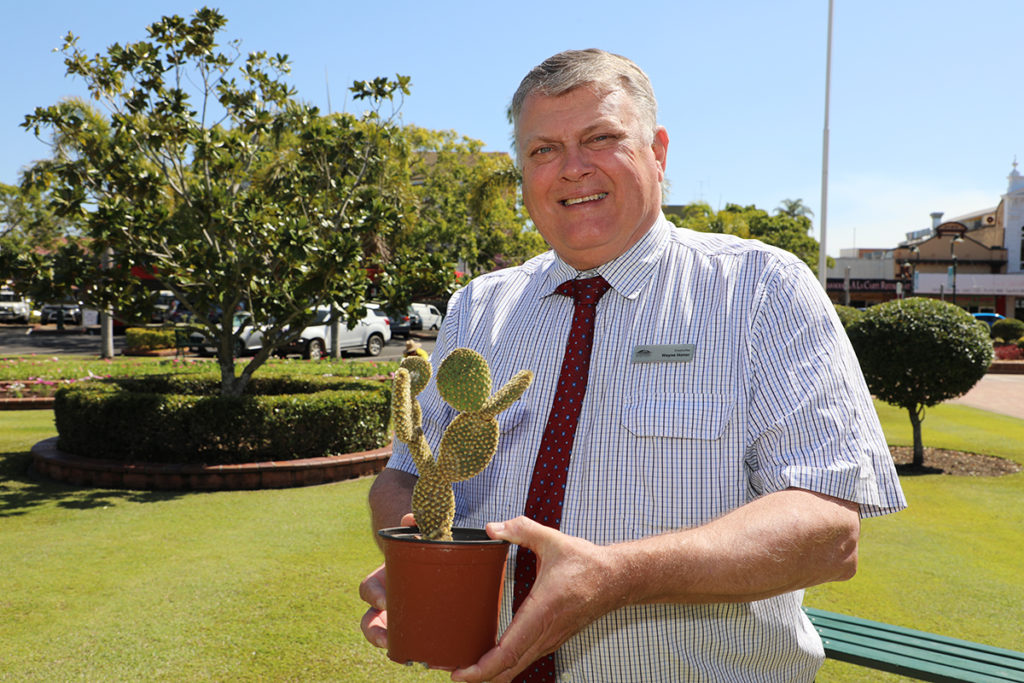
Bundaberg Regional Council is trying to avoid a spike in the occurrence of pest plants by warning residents about illegal cacti.
Bunny ears, Hudson Pear and Eve’s pin cacti are all in the crosshairs of the Wide Bay Burnett Regional Organisation of Councils Invasive Species Committee.
These cacti are declared a restricted plant under the Biosecurity Act 2014 meaning it is illegal to propagate or sell them at markets, nurseries or online.
Environment portfolio spokesperson Cr Wayne Honor said surrounding local government areas in North and South Burnett had recently experienced small outbreaks of the Hudson Pear cactus.
“These cacti cause a range of issues for our environment including their ability to infest and destroy agricultural land, harbour pest animals and even blind cattle,” Cr Honor said.
“The three species being targeted are the most common cactus varieties seized by Biosecurity Queensland from private gardens in the local area or being sold at markets and through social media.
“If you are propagating and selling plants, or buying plants online, it is so important to know what you are doing.
“These plants are restricted for a reason. They can be highly damaging to the surrounding environment and native animals.
“Our local Landcare groups are a wealth of information and knowledge for any residents who may be unsure about what to plant in their gardens. Native Australian plants are always a safe bet.”
For further information on how you can be involved in the program, or for information on additional measures that you can adopt to reduce your risk of introducing invasive species on your property, please contact Council’s biosecurity team on 1300 883 699.
More about illegal cacti
(information sourced from daf.qld.gov.au):
Bunny Ears (Opuntia microdasys):
Bunny ears is a cactus native to northern Mexico. This species is currently targeted for eradication. The glochids of bunny ears may blind cattle and if humans come into contact with the glochids, it can have some health impacts causing skin irritation. If allowed to spread, bunny ears has the potential to spread over considerable areas of Queensland.
White Hudson Pear (Cylindropuntia rosea):
Hudson pear can destroy grazing land and prevent most forms of outdoor recreation, including bushwalking, camping and make access on horse-back virtually impossible. The reverse-barbed spines can injure livestock, humans and native animals, reducing or preventing grazing activities and productivity. Hudson pear is sometimes grown as ornamentals, despite their sharp spines and tendency to spread.

Eve’s pin (Austrocylindropuntia subulata):
Eves’s pin cactus is an upright branching shrub that can be found in south east Queensland. It can displace native vegetation, destroy native pastures and hinder movement of animals and people. Eve’s pin cactus is also known as Eve’s needle cactus.




